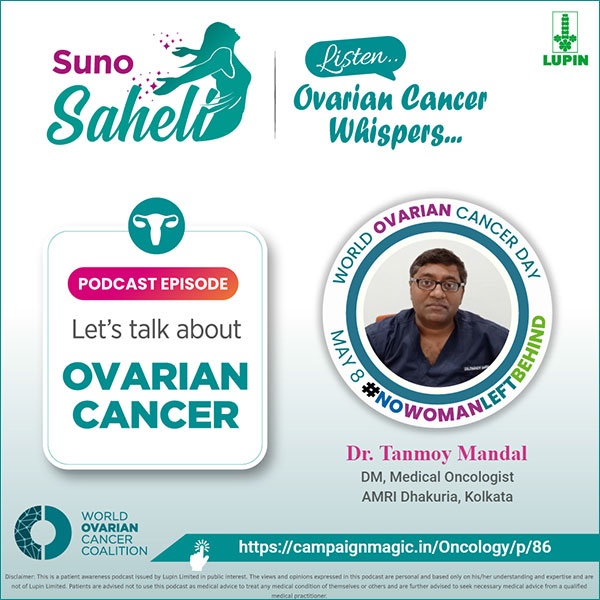
Ovarian Cancer
What is ovarian cancer?
Ovarian cancer is a kind of cancer that originates in the ovaries, which are the female reproductive organs responsible for producing eggs for fertilization. According to an ovarian cancer doctor in Kolkata, it occurs when cells in the ovary grow and divide uncontrollably, forming a tumour. There are several types of ovarian cancers – epithelial ovarian cancer, stromal ovarian cancer, and germ cell ovarian cancer.
What are the symptoms of ovarian cancer?
Symptoms may not appear until ovarian cancer has advanced to a later stage. However, some women with ovarian cancer may experience the following symptoms:
1. Abdominal bloating, swelling or pressure
2. Pelvic or abdominal pain or discomfort
3. Feeling full quickly or difficulty in eating
4 . Urinary symptoms, such as urgency or frequency
5. Changes in bowel habits like constipation or diarrhoea
6. Unexplained weight loss or gain
7. Fatigue
8. Abnormal vaginal bleeding
Causes of ovarian cancer
There are risk factors that increase a woman’s risk of developing ovarian cancer. These risk factors have been listed below by a gynaecological cancer doctor in Kolkata.
1. Age : Ovarian cancer is more common in women over the age of 50.
2. Family history : Women who have a family history of ovarian cancer or breast cancer may be at increased risk of developing ovarian cancer, especially if the cancers occurred in close relatives such as their mother, sister, or daughter.
3. Inherited genetic mutations : Some inherited genetic mutations, such as BRCA1 and BRCA2, can increase the risk of ovarian cancer.
4. Hormone replacement therapy : Long-term hormone replacement therapy (HRT) may increase the risk of ovarian cancer.
5. Endometriosis : Women with endometriosis may be at increased risk of developing certain types of ovarian cancer.
6. Obesity : Obesity has associations with an increased risk of ovarian cancer.
7. Reproductive factors : Women who have never been pregnant, had their first pregnancy after age 35, or went through menopause after age 50 may be at increased risk of ovarian cancer.
Treatments of ovarian cancer
Ovarian cancer is typically treated through a combination of chemotherapy, radiation therapy, and surgery. The specific treatment approach depends on the stage and type of ovarian cancer, as well as the patient’s overall health and preferences. Below, a gynae oncologist in Kolkata discusses these treatments.
1. Radiation therapy : It uses high-energy radiation to kill cancerous cells. It is less commonly used to treat ovarian cancer than surgery and chemotherapy.
2. Chemotherapy : It uses drugs to kill cancerous cells throughout the body. It can be administered before or after surgery. Chemotherapy is given in cycles, with each cycle lasting several weeks.
3. Hormonal therapy : This therapy is used to treat certain types of ovarian cancer that are hormone-sensitive. It works by blocking the hormones that fuel the growth of cancer cells.
4. Targeted therapy : The drugs of targeted therapy are designed to target specific proteins or pathways that cancer cells use to grow and divide. These drugs can be used in combination with chemotherapy to improve outcomes in some cases.
5. Surgery : The surgeon will attempt to remove as much of the cancerous tissue as possible through a procedure called debulking surgery. In some cases, they may need to remove one or both ovaries, as well as nearby lymph nodes, the uterus, and other reproductive organs.
Book an Appointment

Dr. Tanmoy Kumar Mandal
D.M.(Medical Oncology), M.D.(General Medicine)

